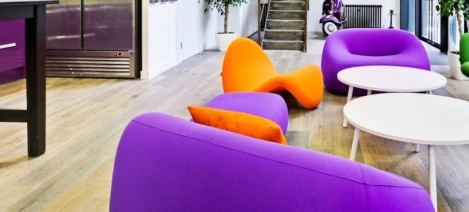May 26, 2016
Two in five managers oppose employees working from home 0
 Flexible working may be growing in popularity among employees but there is evidence of a gap in expectations between employers and employees on where work should take place. A new report from Randstad found that only around a third of UK employees (35 percent) still want to work in the office every day of the week, with a majority (62 percent) wanting the option of working from home. Employers it seems feel very differently, as a report by Cornerstone OnDemand and IDC reveals that cultural attitudes are a major obstacle for the full acceptance of flexible ways of working, preventing employers from viewing it as a legitimate work practice. Two in five line managers (40 percent) admit that they do not want their employees to work from home, and crucially, even if a company facilitates remote working, bosses’ attitudes are keeping their employees in the office, with just 13 percent of employees actually choosing to work from home when given the option.
Flexible working may be growing in popularity among employees but there is evidence of a gap in expectations between employers and employees on where work should take place. A new report from Randstad found that only around a third of UK employees (35 percent) still want to work in the office every day of the week, with a majority (62 percent) wanting the option of working from home. Employers it seems feel very differently, as a report by Cornerstone OnDemand and IDC reveals that cultural attitudes are a major obstacle for the full acceptance of flexible ways of working, preventing employers from viewing it as a legitimate work practice. Two in five line managers (40 percent) admit that they do not want their employees to work from home, and crucially, even if a company facilitates remote working, bosses’ attitudes are keeping their employees in the office, with just 13 percent of employees actually choosing to work from home when given the option.


































May 12, 2016
Making sense of the relentless babble about flexible working
by Mark Eltringham • Comment, Facilities management, Flexible working, Workplace design
(more…)